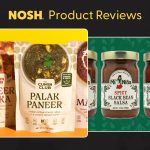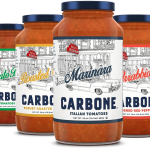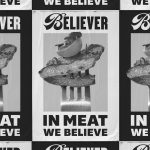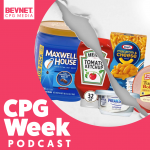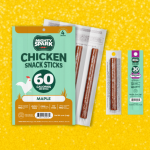Opopop Looks to Remix the Microwave Popcorn Category Following $5M Round
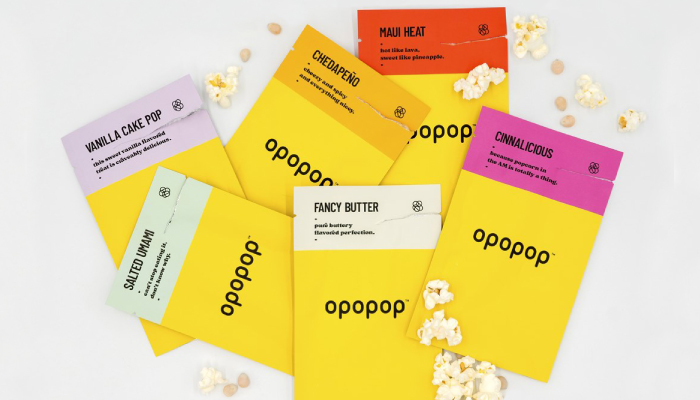
Popcorn startup Opopop wants to make popcorn “fun and cool again” — a mission it hopes to achieve by innovating in a space that hasn’t seen many major product advances since the invention of the air popper decades ago. Launched this week by music industry entrepreneurs Jonas Tempel and Bradley Roulier, Opopop is beginning by reimagining the microwave popcorn space.
Investors seem to see potential in the company as well, with Opopop announcing last week it had closed a $5 million round, for a total of $11.6 million in funding raised to date. Led by Valor Siren Ventures, the funding round also included RXBAR founder Peter Rahal, DJ and producer Tiesto, Jimmy Chin, director of Oscar-winning documentary “Free Solo,” and Batshit Crazy Ventures.
While new to the food and beverage industry, Tempel and Roulier are no strangers to launching successful startups. Together they founded online electronic music store Beatport in 2004 and ultimately sold it to SFX Entertainment in 2012 for $50 million. Tempel was also the founding CEO at Beats Music, and led the early development of what would eventually become music streaming platform Apple Music. Now, Tempel and Roulier are shifting their sights to disrupting a completely different space. Inspired when snacking on popcorn one day, the two were struck with an idea to modernize the classic snack by welcoming in a “new generation” through technology and flavor innovations, Tempel said. The pair quickly brought in a number of CPG and tech experts to get the idea off the ground.
“Popcorn is one of the most loved snack categories but has seen zero innovation,” he said. “Investors were convinced by our vision and the credentials of our team to pull off this ambitious vision.”
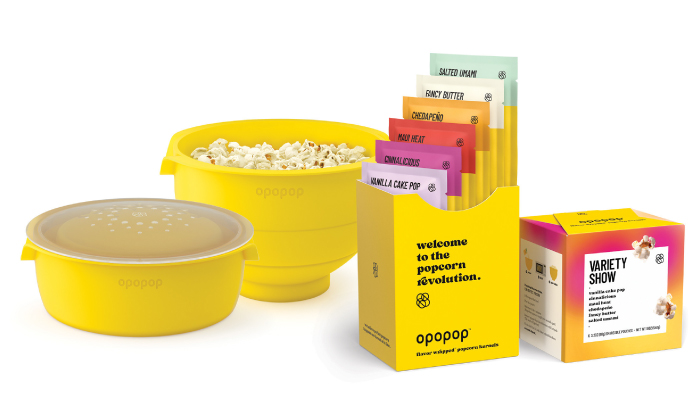
Opopop’s first launch is a line of “flavor wrapped” popcorn kernels. While most microwave popcorn brands have a flavoring powder inside the bag that disperses when heated, Opopop’s popcorn kernels are individually coated, similar to Peanut M&Ms, CMO Chuck Lepley noted. The company has also shunned another staple of the category: the popcorn bag. Instead, Opopop suggests consumers start by purchasing a “Discovery Kit” ($40) which includes one serving of each flavor along with a reusable popper and lid. Lepley said the popper offers consumers a “better experience” compared to a typical popcorn bag, allowing consumers to better monitor the popcorn as it pops and eat straight out of a bowl, rather than an often greasy bag.
Opopop’s six flavors range from Fancy Butter and Maui Heat to Cinnalicious and Vanilla Cake Pop, with the company’s kernels sourced from Nebraska and popcorn manufactured at its Colorado facility. After consumers identify their favorite options, they can purchase 16.9 oz. bags of kernels, which are sold as a three-pack for $45 with shipping extra. The popcorn’s pricing ultimately comes out to about $2.50 per family-sized serving, which Lepley says is competitive with other premium microwave popcorn, though Opopop’s per ounce price is higher.
Though the technology may be innovative, the brand may face some hurdles when selling to consumers. Opopop does not and has no immediate plans to offer bagged popcorn, which at approximately $956 million in sales as of March according to IRI sales data, accounts for about 85% of the $1.1 billion popcorn/popcorn oil category. The product — which carries a six-month shelf life, on the short end for typical kernels — is also temperature sensitive, with the signature flavor wrapping melting off when exposed to high temperatures. That means it must be shipped on ice in the summer months and consumers must keep the product cool.
Lepley believes those challenges will nevertheless be worth it.
“The problem really with the popcorn category is it just feels like a race to the bottom,” Lepley said. “Because of that, we don’t feel like consumers are getting great popcorn, frankly. So part of our job is to sort of re-educate consumers and reframe how they think about popcorn.”
To balance their backgrounds in the music industry, Tempel and Roulier have built out the brand’s team with experts in the CPG food space, including General Mills veterans Sarah McDowell (president), who led marketing at Larabar, and Alec Hopkins (VP of product and insights) who headed R&D for brands like Pillsbury, Annie’s and Yoplait. Lepley, former director of marketing at consumer electronics company Sphero, also lends tech expertise.
Though the idea for the microwaveable flavor wrapped kernels arrived last year, the company has been quietly working on a larger tech play since 2018. According to the U.S. Patent Application filed by Roulier and Tempel in 2018, the company has been developing a pod-based grain-popping machine for flavor wrapped kernels that “resolves the myriad problems associated with existing popcorn popping systems and methods.” The Opopop system would consist of a special popping machine and popcorn “pods,” where each cell contains a kernel, flavoring and cooking oil, the application said. As the popcorn cooks, it ejects from the bottom of a cell into a bowl, somewhat similar to pushing a pill through a blister pack.
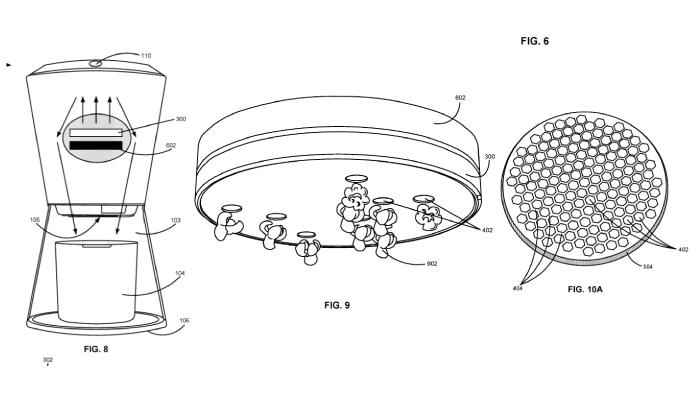
The company declined to comment on the development of this technology and when it would launch, with McDowell simply saying the company aims to “reinvent popcorn from all angles.”
Beyond the popping machine, Lepley said products in the innovation pipeline possibly include a version of the kernels suitable for stove top popping, as well as complementary cooking oils. Tempel said he believes the vision for Opopop is more “holistic” than other brands like Quinn and LesserEvil who have innovated in the popcorn space in recent years.
“We intend to build an ecosystem of products for popcorn enthusiasts,” Tempel said. “When our portfolio is complete, we’ll have products for all types of popcorn lovers. Our vision is much larger than the microwave.”


